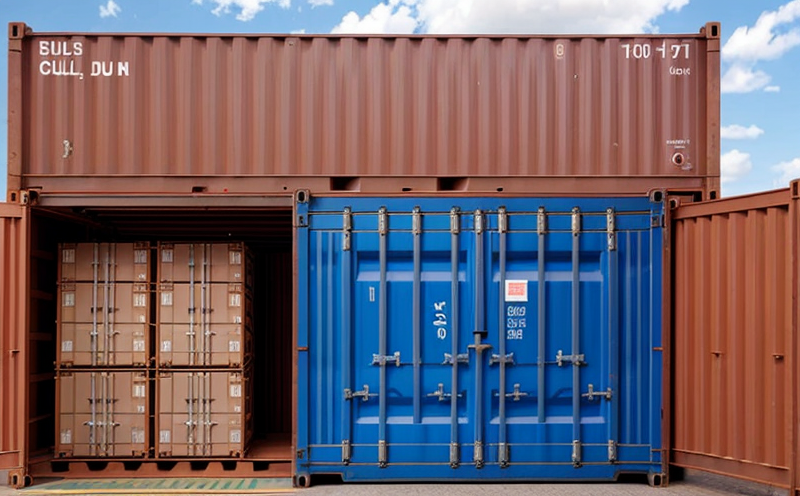USP Container Internal Surface Coating Testing
The United States Pharmacopeia (USP) Container Internal Surface Coating Testing is a critical component of ensuring drug product safety and efficacy. This testing ensures that the internal surface of containers used for packaging pharmaceutical products does not adversely affect the stability, purity, or quality of the medication. The USP guidelines provide stringent standards to verify that container materials do not leach into the drug product during storage.
The test involves several steps: preparation of the coated surfaces, conditioning, and then conducting a series of dissolution tests. Dissolution tests assess whether the coating is intact and does not release harmful substances into the medication over time. The USP guidelines specify that the internal surface coatings should be inert and non-reactive with the drug product.
The testing process is meticulously designed to identify any potential risks associated with the container’s integrity. This includes checking for cracks, imperfections, or any signs of degradation that might affect the stability of the medication. By adhering to these stringent tests, pharmaceutical companies can ensure their products meet regulatory standards and are safe for patient use.
Quality managers, compliance officers, R&D engineers, and procurement teams rely on this testing to maintain product integrity and compliance with USP requirements. The test ensures that the packaging materials used do not interfere with the chemical composition of the drug during storage and distribution. This is particularly important for long-term stability studies where even trace amounts of leachables can compromise the efficacy of the medication.
Understanding the testing process involves recognizing the various types of coatings used in pharmaceutical containers, such as those made from polymers or metal alloys. Each type requires specific handling and preparation methods to ensure accurate results. The dissolution tests are performed under controlled conditions that mimic real-world storage environments, allowing for precise assessment of the coating's performance.
The importance of this testing cannot be overstated, especially in light of recent recalls due to container issues. Compliance with USP standards helps prevent such incidents by ensuring that all packaging meets rigorous quality and safety benchmarks. This proactive approach not only protects patients but also enhances brand reputation and regulatory compliance.
Industry Applications
- Pharmaceutical manufacturing facilities
- Contract Manufacturing Organizations (CMOs)
- Medical device companies using pharmaceutical containers
- Laboratories specializing in drug stability studies
The USP Container Internal Surface Coating Testing is essential for ensuring that the packaging used in these applications does not contaminate or degrade the integrity of the medication. This testing is particularly critical in high-stakes environments where even minor deviations can lead to significant risks.
Why Choose This Test
- Ensures compliance with USP standards and regulatory requirements
- Avoids potential drug recalls due to packaging issues
- Enhances patient safety by ensuring product purity
- Reduces the risk of contamination during storage and transportation
The USP Container Internal Surface Coating Testing is a vital step in maintaining the integrity of pharmaceutical products. By choosing this test, organizations can demonstrate their commitment to quality and safety, thereby enhancing their reputation in the market.
International Acceptance and Recognition
The USP Container Internal Surface Coating Testing is widely recognized and accepted across the pharmaceutical industry. This testing aligns with international standards such as ISO, ASTM, EN, and IEC, ensuring that it is applicable worldwide. Compliance with these tests enhances global trade opportunities for pharmaceutical companies by meeting stringent regulatory requirements in multiple jurisdictions.
Pharmaceutical manufacturers from various countries have adopted this testing to ensure their products meet the highest quality standards. This recognition underscores the importance of adhering to USP guidelines, which are considered a benchmark for excellence in pharmaceutical packaging and container closure systems.





